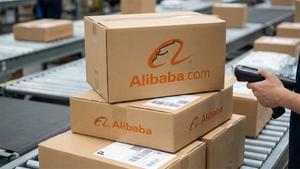The report also finds that 71% of employees want to work a hybrid or remote schedule of their choice, but only 43% have control over where they work – a 28-point ‘preference gap’
Ivanti, the provider of the Ivanti Neurons automation platform that discovers, manages, secures, and services IT assets from cloud to edge, today announced the results of its 2023 Report: Elevating the Future of Everywhere Work. Ivanti collaborated with ‘Future of Work’ experts and surveyed 8,400 office workers, IT professionals and C-level executives across the globe to understand attitudes, expectations and challenges facing future-looking organizations and their employees. The goal: to explore what happens when employees want to work anytime, anywhere... but their company isn’t equipped to deliver it.
The number of employees wanting control over where they work has remained consistent since Ivanti’s 2022 Everywhere Workplace Report – 71%, but the research finds that employers and employees remain locked in a struggle about who gets to define the time, location and manner of work.
- 71% of employees want to work a hybrid or remote schedule of their choice
- Only 43% of employees can work in the location of their choice
- The difference between the two numbers above creates a 28-point ‘preference gap’
Additionally, the report finds that the benefits and flexibility of Everywhere Work has not yet been fully democratized – when surveying executives and IT professionals the ‘preference gap’ shrinks to 12 points and 13 points respectively.
“When it comes to how and where employees work – leaders who do not embrace and enable flexibility where they can – also risk not reaping the benefits of a more engaged, more productive workforce,” said Jeff Abbott, CEO at Ivanti. “Attracting and retaining the very best talent will always be an executive priority, but the organizations that embrace an Everywhere Work mindset – and supporting tech stack – will have a sustainable competitive advantage. There has been a seismic shift in how and where employees expect to get work done and it's imperative for leaders to break down culture and tech barriers to enable it.”
Employees are clamoring for new ways of working. They want to safeguard personal time and minimize the most burdensome parts of work life: long commutes, time away from family and the negative impacts on health and well-being. But so far employers are slowly feeling their way forward, still treating virtual working as an experiment that may yet be reversed. In fact, the research finds rampant burnout and disengagement among knowledge workers – particularly younger employees:
- 1 in 3 office workers under 40 admits to “quiet quitting”
- Over 1 in 4 office workers under 40 are considering leaving their jobs in the next six months
- The top reasons for the ready-to-walk mindset are burnout due to workload (35%) and mental health suffering (35%), better pay ranks third at 33%
There is growing acceptance that hybrid and remote work options boost employee satisfaction and make work-life balance more achievable. Fully 71% of organizational leaders surveyed by Ivanti say remote work has a positive impact on employee morale. Additionally:
- 66% of office workers say they have not experienced any negative side effects from hybrid/virtual work – a 15-point increase from the 2022 survey.
- Only 2% of office workers believe they have been passed over for a promotion due to hybrid working, a significant decrease from 9% in the 2022 survey.
- Office workers would be willing to take an 8.9% pay cut to be able to work remotely, an increase from 5% in 2022.
The report also outlines four ways businesses enable Everywhere Work:
- Invest in get-it-done-anywhere technology - It’s time to think about collaboration not just in terms of communication but also in terms of process. A simplified organization-wide service management solution makes work life easier and more productive, no matter the location.
- Challenge how organizations think about security - When employees work virtually, there’s less oversight of their activities, meaning organizations take on additional risks. To release some of that pressure, employers should invest in an organization-wide, risk-based remediation strategy.
- Beware of IT burnout - Business leadership, in the years to come, will be about taming complexity, and simplifying tech stacks and workflows to minimize employee burnout.
- Reduce the preference gap – Listen to employees and look for innovative technologies like dynamic collaboration tools, workflow automation and even AI-powered bots to empower workers to be more effective and efficient.
You can read more of the findings from the report here.
About Ivanti
Ivanti elevates and secures Everywhere Work so that people and organizations can thrive. We make technology work for people, not the other way around. Today’s employees use a wide range of corporate and personal devices to access IT applications and data over multiple networks to stay productive, wherever and however they work. Ivanti is one of the only technology companies that finds, manages and protects each IT asset and endpoint in an organization. Over 40,000 customers, including 88 of the Fortune 100, have chosen Ivanti to help them deliver an excellent digital employee experience and improve IT and security team productivity and efficiency. At Ivanti, we strive to create an environment where all perspectives are heard, respected and valued and are committed to a more sustainable future for our customers, partners, employees and the planet. For more information, visit www.ivanti.com and follow @GoIvanti.
View source version on businesswire.com: https://www.businesswire.com/news/home/20230508005559/en/
Contacts
Press Contact
Carrie Laudie
Ivanti
Associate Director, Public Relations
+1 650-963-6011
carrie.laudie@ivanti.com



